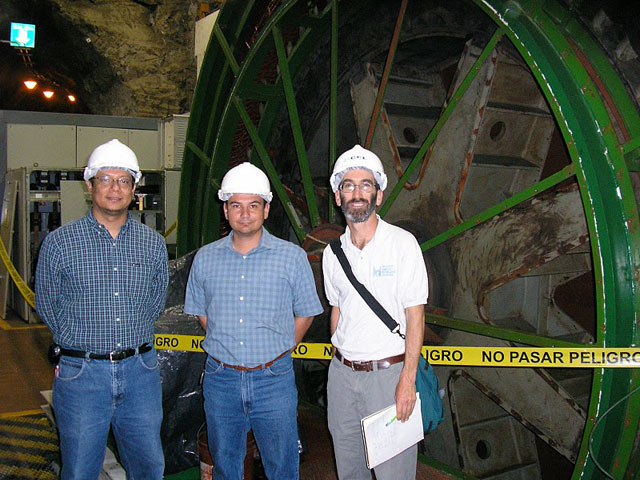
From January to June, Engel was a lecturer at the Universidad Don Bosco in the city of San Salvador. His primary lecturing project was “Curriculum and Program Development in Renewable Energy and Energy Efficiency.” He also assisted local faculty and students with a renewable energy generation project on campus.
Hydroelectric and geothermal systems already provide a large percentage of El Salvador’s electric energy. But groups within the country, including government and non-profit organizations, hope to further diversify El Salvador’s renewable energy capabilities.
Engel, for one, sees great potential for solar energy. “They have an excellent solar resource and haven’t done much with that yet,” he says. He also designed a curriculum to introduce his Don Bosco students to hydrogen and fuel cell technologies.
At one point, however, Engel was forced to redesign his lesson plan. He had expected to be teaching young, inexperienced students about renewable energy and had planned to cover introductory information in his curriculum. He was surprised to find that most of his students were adult, working engineers – one student even worked as a technical advisor to the President.
“It was a really interesting, fun group of people. They were dynamic,” Engel says. “Working with the students was inspiring, though intimidating at times.”
Engel and his students participated in classroom presentations, hands-on lab exercises with renewable energy technologies, and multiple visits to large and small-scale sites that produce renewable energy. Compared to the United States, El Salvador’s energy facilities are much more accessible. Because of this, Engel and his students got an up-close education not available to students in America.
In addition to lectures and field trips, Engel’s Fulbright program included working with the university to create an on-campus renewable energy generation project.
Universidad Don Bosco envisioned a project using a small-scale pump to help store solar energy. The project would use excess solar energy accumulated during daylight to pump water upstream. When the sun’s energy is unavailable at night, the water would be allowed to run downhill, turning turbines to create electricity. Such systems on a large scale are viable technologies for energy storage. However, Engel ran into difficulties with the smaller-scale project.
“I wound up coming up with a system that was pretty expensive compared to battery storage. About 50 times as much,” Engel says, though he adds that batteries are made with toxic chemicals that are not present with hydro pumped storage.
Although economically unattractive, the Universidad Don Bosco hasn’t given up on the project. “It’s something they’re still looking at,” Engel says. “It has value as an educational tool.”
One joint project that is going forward is the development of an energy research center. Engel worked with Carolyn Turpin, Cultural Affairs Officer for the U.S. Embassy to El Salvador, to secure a grant for lab equipment, software and books. Engel anticipates the center will play a similar role at Don Bosco to that of the Schatz Energy Research Center at HSU.
Though his Fulbright program is complete, Engel hopes the two universities will continue to work together. Ideally, he envisions a student exchange program where Salvadoran students can experience renewable energy technologies uncommon in their home country and HSU students can experience a culture of renewable energy more open than their own.